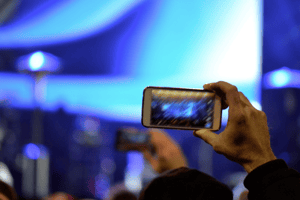
Your organization has just made the decision to host an event - great! Now to the planning and promoting of the event. There’s a lot to think about when planning an event. All the logistics of the event usually come top-of-mind. However, promotion of the event is just as crucial in getting people to attend the event. Learn how inbound marketing for events can benefit your planning and preparation.
You might already be familiar with inbound marketing and all it entails, but I’d like to discuss how inbound marketing can be used in your event marketing strategies.
Before Your Event
Before your event occurs, your focus should be on driving awareness of the event and registrations. Inbound marketing tactics can be used to create buzz about your event - content, email, SEO, and social media are all essential here.
Create content that speaks directly to your ideal attendee (persona) about the benefits of attending the event. These benefits should answer some pain points and questions that your persona has, as well as using key term research to optimize for search engines. Blog articles should highlight bits of wisdom that will be gained from the presenters at your event. The content should also drive your readers to the event registration page.
Use this targeted content in your email marketing efforts to reach an audience that has already engaged with your site and company. Email marketing can have a big effect on your event marketing. Emails specific to event marketing have open rates between 25-40 percent and click-through rates between 25-40 percent. With these statistics in mind, the content within your email should be helpful, not sales-y. Make sure to include links to FAQ pages related to the event and your event registration page.
Social media is a great way to reach your networks. Create a social media event and share it with your network - ask your employees to do the same. Post about the event and all it will include in the months leading up to the event and tag your speakers. Social media has the power to reach not only the networks you
By utilizing these inbound marketing tactics within your event marketing strategy, you will see better engagement, registration, and overall awareness of your event.
During Your Event
Engage with your attendees at the event through social media and sign-ups. During  sure to announce that attendees can post questions and photos via social media and get real-time answers. Don’t forget your event hashtag so you can see all the posts related to the event.
sure to announce that attendees can post questions and photos via social media and get real-time answers. Don’t forget your event hashtag so you can see all the posts related to the event.
Also, remind your attendees of the content available on your site if they have questions or are looking for resources related to the speaker topics.
Attendees will also provide their contact information at the event. Ask to contact them after the event and to keep in touch with updates. You can use this information at the end of the event to thank them for joining and for a survey of how the event went.
After the Event
Your event is over, but contact with your attendees shouldn’t be. Your attendees just finished a great event that has them engaged with your company, don’t let the momentum slide now.
Follow-up with your attendees. Email marketing workflows are a great way to create multiple points of contact with your attendees. Providing a recap of the event, presentations, or videos is a positive way to reach out to the group. After a week, reach out again asking for any questions they might have now that they are back in their work roles. The key is to stay top-of-mind as they connect back to their roles and how your organization can assist them.
Publish post-event content that summarizes how the event went, thank attendees, and offer resources that might assist them. If you have it already, throw out the date of the next event to get on their calendars. You want your attendees to see your organization as a resource and reach out when they are ready.
Inbound marketing for events gives you many ways to drive awareness and connect with your target audience. By focusing on the best ways to communicate and push content out in each phase, you are setting your organization up for event marketing success.
